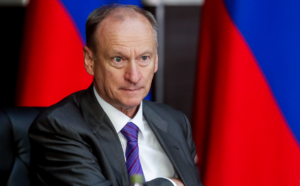Nikolai Patrushev, the Russian Security Council’s Secretary, proposed a new cooperation plan on February 27 in Managua, Nicaragua.
He met with leaders from Nicaragua, Cuba, Venezuela, and Bolivia.
His plan aims to strengthen these countries’ independence, raise their global profile, and protect them from Western pressures.
Patrushev explained that this plan would help countries stand up to U.S. actions. He said the U.S. often tries to remove governments it doesn’t like and limit countries’ freedom.
He pointed out how these nations understand Russia’s situation well, facing similar challenges from the U.S.

He warned these countries about the U.S. creating trouble in their regions. He used the recent crisis in Ecuador as an example.
This shows how quickly peace can be disturbed without using military force.
Julio Avilés, head of Nicaragua’s army, saw the meeting as a chance to make their alliance stronger. He said it was vital to face these challenges together.
Laureano Ortega, speaking for Nicaragua’s president on Russian matters, thanked Russia for its support. He spoke against the global push against them.
This meeting marked a critical moment. It showed Russia and these Latin American countries coming together.
They aim to defend their right to make their own choices, free from outside interference.
Background
Russia’s proposal to Latin American countries marks a significant move to deepen ties, challenging U.S. influence in the region.
It builds on historical diplomatic efforts, highlighting a shared desire for greater sovereignty and autonomy against external pressures.
This initiative not only seeks political solidarity but also aims to revive Russia’s presence in Latin America, reminiscent of Cold War dynamics.
By advocating for a multipolar world, Russia supports these nations in asserting their global standing, potentially altering regional and global power structures.

